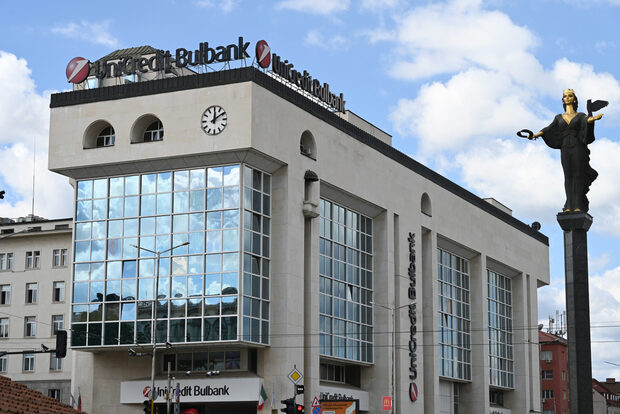In Bulgaria, those who use online banking are in a minority. Eurostat statistics show that only one in eight Bulgarian citizens has installed this service on their phone. Also, Bulgaria has one of the worst Internet connections in Europe. And, naturally enough, the low percentage of people connected online is inextricably linked to the low consumption of online services.
It is important to note that the vast majority of data from the Eurostat statistics dates from May 2020. So they have caught partially, but not completely, the trend towards accelerated digitalization in the country due to COVID-19.
For example, in the Northeastern region of Bulgaria, only 5% of consumers use mobile banking. Similar results can be found in South Central, Northwestern and Southeastern Bulgaria - where the figure is about 7%. The difference is significant compared to the Southwestern region, which includes Sofia, where the percentage jumps sharply to 24%.
The reason behind the results in Bulgaria is partly due to the supply of the service. It is a relatively new phenomenon: most banks have only offered mobile applications in the past few years and only recently have they viewed them as a complete solution. The Bulgarian banks, just like their consumers, change slowly. This is in sharp contrast to the ever-growing number of fintech companies in the country, whose focus, however, is on foreign markets.
On the other side is the problem of demand: Bulgarian consumers are predominantly older and traditionally conservative, and particularly skeptical of banking services (and after two crises with bankrupt banks, this is perfectly understandable).
Also, Bulgaria lags in another online niche - online shopping. Although in this case, the data doesn't reflect the coronavirus digital changes, Bulgaria is home to the only four regions across the EU in 2020 in which fewer than 30% of people shopped online in the 12 months before the study.
They are the North Central, South East, South Central and North West. The Southwest region has the highest percentage, and the explanation, of course, is that it contains Sofia.
A 2021 survey by Trend social agency shows that 56% of Bulgarians have never ordered anything online. Interestingly, another survey by Nielsen and Capital, conducted only between online users this year, shows that almost everyone in the country who has access to the Internet has experience with online shopping.
Similar to online banking, the reasons again are two-fold: supply and demand. Firstly, very few Bulgarian companies sell on the Internet. For example, the caretaker prime minister for EU Funds Atanas Pekanov recently quoted data that says only 5% of small companies do that.
And secondly, in Bulgaria, older people in particular are afraid of fraud and do not feel so secure when they have to operate online. So most people prefer to visit a shop physically. For reference, according to the National Statistical Institute (NSI) questionnaire, the most common answer is "I prefer to shop in-person".
According to Trend, the share of non-shoppers in people over the age of 70 is 96%, while the share of younger ones (under the age of 25) is fewer than 20%.
According to NSI data, only 24% of people over the age 65 use the Internet at least once a week. Thus, the combination of an ageing population and low access to the Internet dooms Bulgaria to a slower entry of online services. Currently, Europe is divided: the further north you travel, the more likely you are to pay your bills with your phone rather than over the pay desk.
In Bulgaria, those who use online banking are in a minority. Eurostat statistics show that only one in eight Bulgarian citizens has installed this service on their phone. Also, Bulgaria has one of the worst Internet connections in Europe. And, naturally enough, the low percentage of people connected online is inextricably linked to the low consumption of online services.
It is important to note that the vast majority of data from the Eurostat statistics dates from May 2020. So they have caught partially, but not completely, the trend towards accelerated digitalization in the country due to COVID-19.











